Slovakia 3-0 Scotland: Problems mount for Gordon Strachan's side
- Published
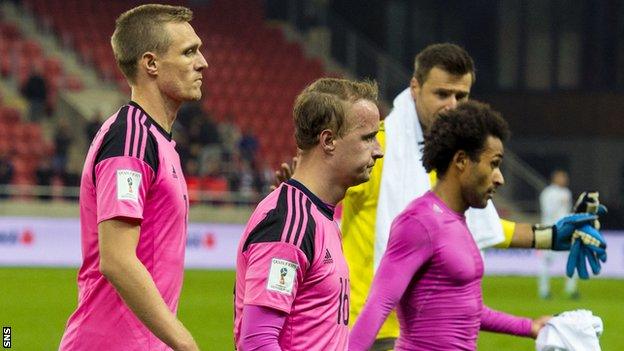
Scotland have taken four points from their opening three World Cup qualifiers
The jeers of the Scotland fans will still be ringing in Gordon Strachan's ears.
He stood on the touchline after the final whistle in Trnava to make sure his players acknowledged the away fans, and then applauded them himself, but the support's response to the final whistle was a damning verdict.
There was plenty of ire at Hampden on Saturday, too, when two points were discarded against Lithuania, and it is the weight of public opinion that will bear most heavily on the mind and status of the national team's manager.
The departures of his immediate predecessors - Craig Levein and George Burley - felt necessary, that's why the decisions were made. Strachan banked a significant amount of goodwill during the first half of the Euro 2016 qualifying campaign, but it has dwindled markedly since then.
In 29 days, Scotland travel to Wembley to face England, and during that time there will be reflection, calls for recrimination, and eventually an element of resolution.
Seeking clarity
The immediate reactions to the 3-0 defeat in Slovakia were emotional, but there is a growing body of evidence from Strachan's time in charge.
Some of the noise ought to be dismissed. It is absurd to suggest that Strachan does not want to be in the job. He may have spent time after the failure to reach the Euro finals in France assessing his willingness to lead the squad for another campaign, but he wanted to carry on; he is a passionate Scot and a committed coach.
He cares for his players, which explains some of his exaggerated post-match comments. He no doubt described Chris Martin's display against Lithuania as "outstanding" because he had already made the decision to start Steven Fletcher against Slovakia and did not want the Fulham striker to be the scapegoat for Saturday's 1-1 draw - but supporters have grown weary of the deflection tactics.
Scots' form can change - Strachan
The players remain committed to the manager, while some of his predecessors have struggled to hold squads together, but that is not always enough. It should also be acknowledged that a new manager would not suddenly find himself working with a different squad of more talented players.
Even so, there are decisions that Strachan has consistently made that warrant scrutiny, not least because his position is now under question. If the Scotland support no longer believes in the manager, then it does not matter if he still believes in his work with the players.
Downhill run
Since defeating the Republic of Ireland at Celtic Park in November 2014, Scotland have played nine competitive matches and won only three of them - against Gibraltar, twice, and Malta. There have been defeats to Germany, Georgia and Slovakia, and damaging draws away to the Republic of Ireland and at home to Poland and Lithuania.
Under Strachan, Scotland have failed to deliver a defining victory over a leading side in their group, or when it was needed most. At the critical moment, there has been a collapse of will. In Dublin, in Tbilisi and in Trvana, Scotland have performed poorly, failing to assert themselves, to play with confidence or poise.
When Strachan's side defeated Ireland at Celtic Park, the display merged conviction with spirit and aplomb. The players performed, they refused to buckle under the pressure. That was thought to be a reflection of the progress the manager was making, but instead it has turned out to be the high watermark.
He has not found that balance of endeavour, ability and heart when he has needed it again. That is why it is legitimate to wonder if another manager could. Scotland's results once told of Strachan having improved the team; they now tell of a side that is losing its way.
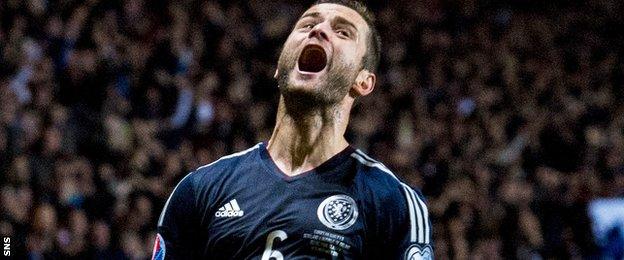
Scotland looked to be a team on the rise when they beat Republic of Ireland in Euro 2016 qualifying, but the team have struggled since
The first-half against Slovakia was encouraging, since Scotland passed the ball well and worked hard out of possession, but still the home side scored once and forced two important saves from David Marshall. Scotland lacked a cutting edge and any kind of defensive security. In the end, the three goals conceded in Trvana were all avoidable, and poorly defended. So it is legitimate to wonder, too, if new ideas might be needed.
Losing to the second seeds in the group is hardly shocking, but the manner of it was disturbing - the team looked deflated and defeated by the second goal - while drawing with the fifth seeds Lithuania was alarming.
In the meantime, Slovenia have been over-performing, so already in Group F Scotland seem unable to climb above their status as third seeds.
Decisions, decisions
Strachan has been trying to evolve his team. Where he once relied on Steven Naismith, Shaun Maloney and James Morrison, it is now Oliver Burke, Matt Ritchie and Barry Bannan. Change has to happen, but not in every position it seems.
The centre-back pairing of Russell Martin and Grant Hanley is set in stone, even if Christophe Berra - also a centre-back with limitations - is playing at the same level in the English Championship (when Hanley is not even in the Newcastle side at the moment).
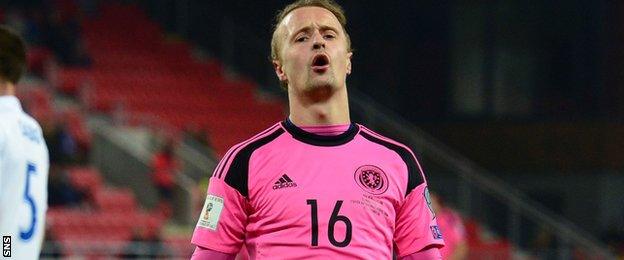
Leigh Griffiths has struggled to secure a starting place for Scotland despite his impressive form for Celtic
Up front, the conundrum has been what to do with Leigh Griffiths, and Strachan can no doubt make a compelling case for the worth of Fletcher and Martin as players who hold up the ball and bring others into the game, but Griffiths scores goals. It is the challenge of the manager to find a way to play a striker like Griffiths, or like Ross McCormack, another regular goalscorer.
Strachan has brought the likes of Andrew Robertson, Kieran Tierney and Callum Paterson into the national team, but currently the side has lost its ability to be better than the sum of its parts.
That has been the puzzle for Strachan to solve; the answer may now be beyond him.
- Published11 October 2016
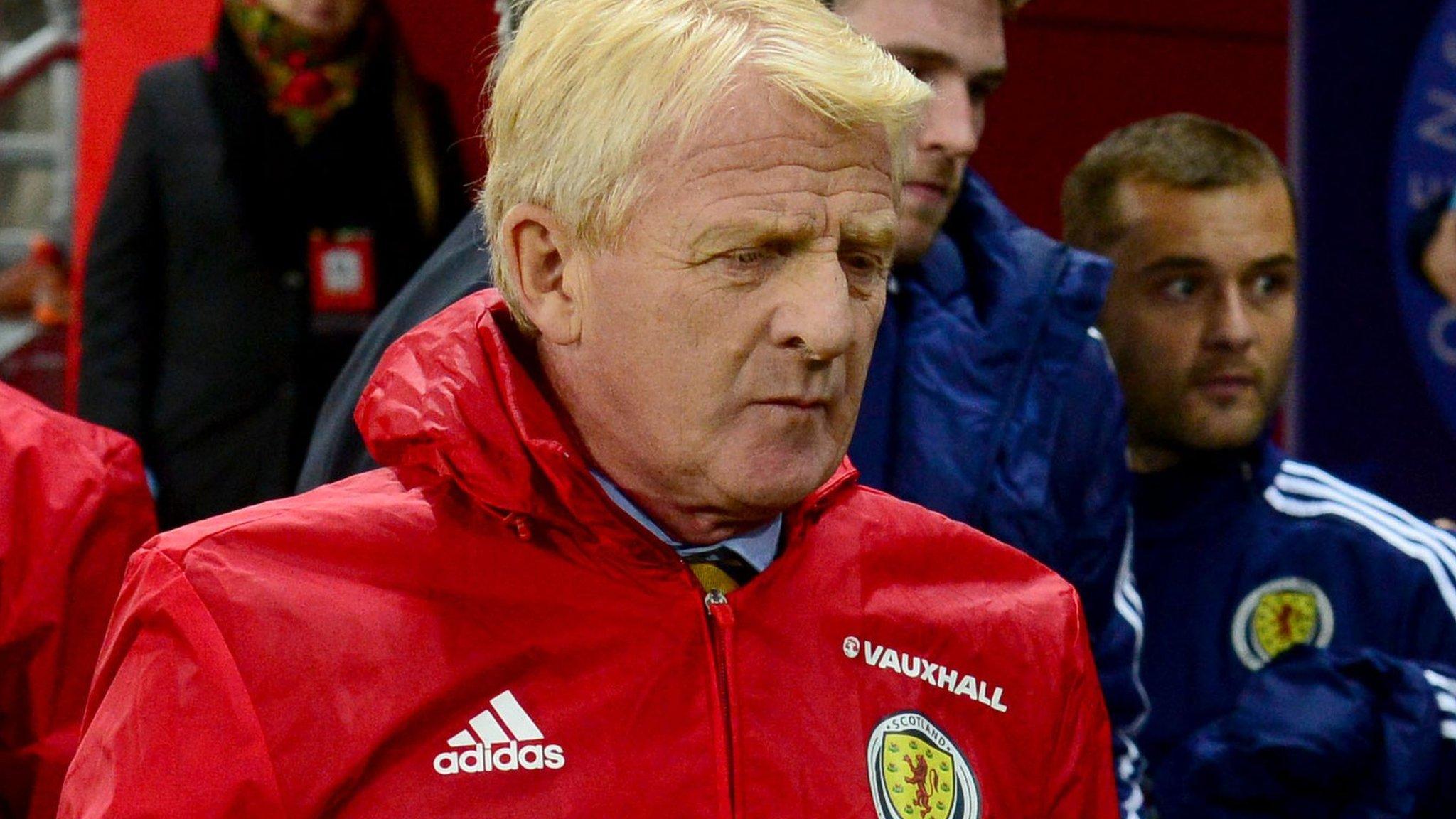
- Published11 October 2016
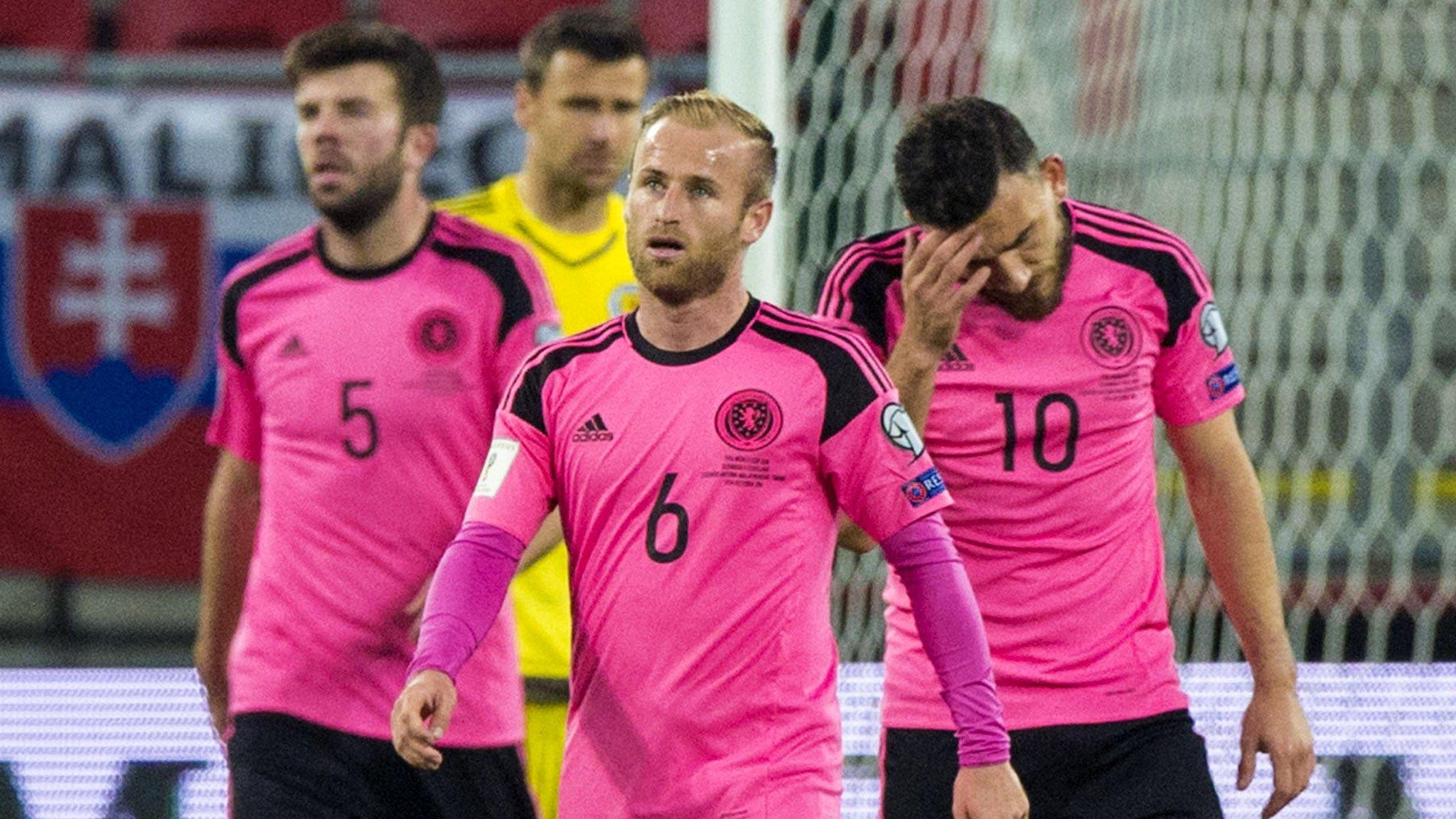
- Published11 October 2016
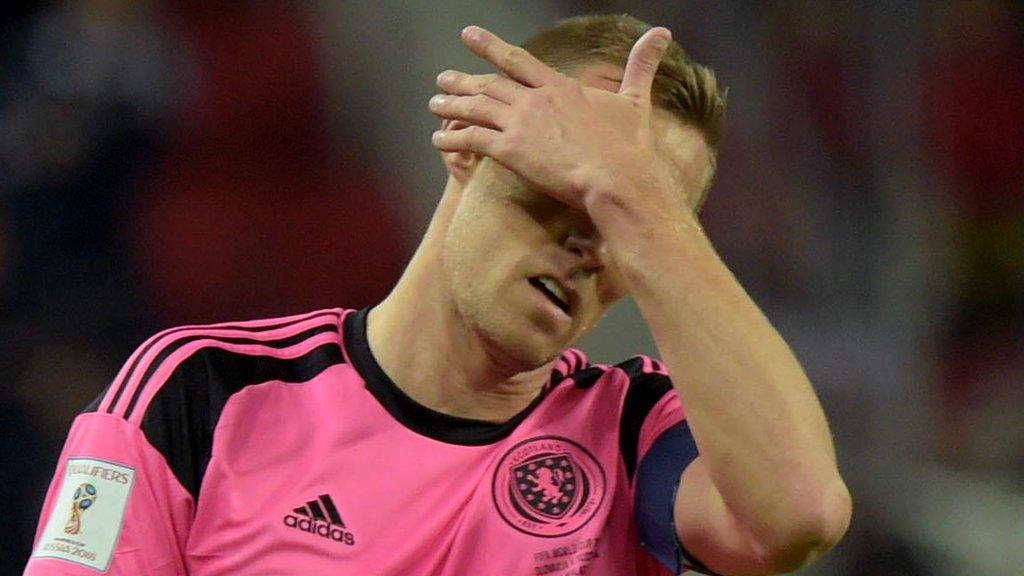
- Published14 January 2018
- Published7 June 2019
